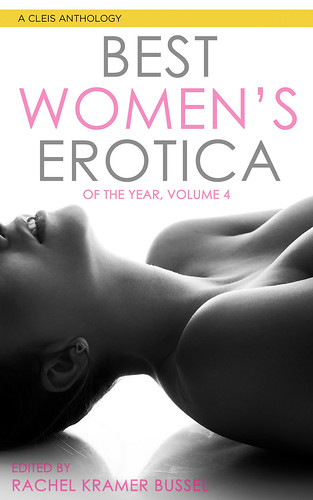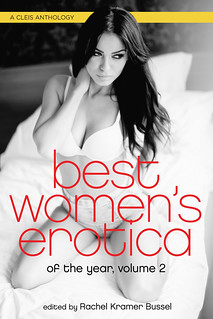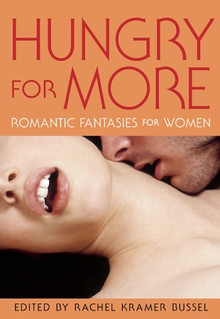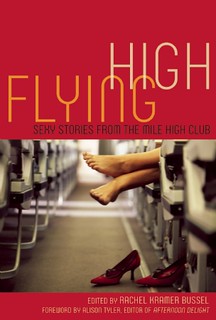Pilgrims Musa and Sheri in the New World at ACT
I'd said I was going to leave this to the critics as my inner "wtf am I talking about?" fear usually overtakes me when talking about topics I don't know much about, so I will preface this post by saying it's not so much a review as an impression of a show I stumbled upon looking for some Seattle culture (not even knowing the theater was 2 blocks from my hotel) and walked away from with lots to think about.
If I lived in Seattle I'd totally get an ACT Pass from ACT Theatre; for $25/month you get to see as much of their theater as you can. I highly, highly recommend Pilgrims Musa and Sheri in the New World, for which I had a front-row seat. Though it was largely about Musa's experience as an immigrant from Egypt, it was also about love, passion, culture, sexuality and expectations and there were so many lines that resonated with me, some of the funnier ones, like Sheri shaking her stomach fat at us and telling Musa that it was like a "rubber tire" (and there were lots of very funny moments) but more lines like "Here's to temptation and the strength to resist it" and "I really am more of a lady than I appear." I started off thinking I was so much like Sheri with her sexy underwear and talkativeness and boldness and provocativeness but wound up identifying with Musa a lot, Musa who admits to being imperfect, to being unable to live up to his family's and others' expectations, who feels them as burdens he can't reveal to anyone (including himself, for the most part), yet who wants so much from the world and the people in it.
I wrote most of this post save for this section last night and then went to sleep and had a really twisted dream and woke up and thought about how Musa would've liked the Clem Snide song, "I Love the Unknown," not just because it's American, but because that is, to me, what he was saying. He says to one of the characters who I don't even want to mention for fear of giving away too much of the plot, "I want confusing." And that was where it turned for me from an immigrant story to a very universal one. Or at least, if not universal, then where I saw myself in Musa. In the song, Eef Barzelay says of his character that he'll get off at "the place with the most allure" and I think that is why Musa, for all his faults, won me over. There's a point where he says he wants to travel and Sheri tells him he's come all the way from Cairo. "Isn't that traveling?" she asks and he says no, not really, because so much--too much--remained the same. I don't think he was a vagabond so much as a searcher and seeker who was looking for that elusive piece of the puzzle that is life (which I realize is not just one piece). It is about him finding it in the United States and while it was emphasized in the program that this is a very American play, which, in many ways, it is, I don't see it as just an ode to the "melting pot"--thankfully.
I am always interested in the moment, or moments, or overall effect, when a piece of art transcends its specificity. I was in downtown Seattle, watching a play about New York City, and it all sortof fit together and that scene, though Musa's venom is a little bit misdirected, was very real to me, about the tension between the expected and the unexpected, between obligation and passion. There is obviously a lot more going on in Pilgrims but that crystallized a lot of things for me as I saw there trying to be as unobtrusive as possible with my pen and paper in my lap.
I think the play also shows us that infidelity, and our very concepts of fidelity--to lovers, to family, to culture, to ourselves, even--are complicated and complex and I think that aspect of the show was done very well. We are living in a time, certainly, where infidelity is seen as a grave crime that others have the right to judge, and I'm not saying the play didn't judge its characters--Musa, certainly, was his own biggest critic--but without trying to justify his actions, he humanized them. The play was set in New York, which made me feel a little touch of home as well.
There was a lot going on. Yes, it's a romantic comedy, and it's plenty comedic; coffee is thrown and Sheri in particular, about the perils of dating in New York, is quite funny, but there are other moments that, without a word, say so so much, like Gemila shaking out her hair.
The program has some interesting pieces in it as well exploring the concept of "pilgrims," "pilgrimage," immigration, culture and belonging. So please do check it out; there were a few parts and minor characters that I didn't think really fit, but they were dwarfed by what I thought worked. Coming this summer to ACT: Sarah Ruhl's look at hysteria, In the Next Room, or the vibrator play, which is a humorous take on a disturbing period of history when women's sexuality was treated as, well, a medical problem, by doctors who had very little knowledge of it.
What other people are saying:
While one critic panned it as "really your standard rom com" (I don't agree, but maybe that is why I liked it, as I am a rom com fan), here's this review from SeattleActor.com:
For all those rather large concerns, the great success in this play is that these characters are so accurately and authentically drawn, so sympathetic without necessarily being admirable. Musa is a recent Egyptian immigrant, driving a cab in New York and trying to build a domestic life in his “empire” (an upstairs apartment of simple, slightly tawdry decor and unflattering lighting). When he invites Sheri to come home with him late one night, it is to simply get to know her better. Or so he would have himself believe.
Musa, played with earnest, charming modesty and sincerity by Shanga Parker, is “a bad Muslim” by his own admission, and his offer of Scotch to Sheri is an indication of his own weakness, and an invitation to hers. Sheri is not really crude or vulgar so much as simply common, the sort of free-wheeling waitress you might encounter anywhere at any time. Slightly older than Musa, she wants him to know that she is not the kind of woman who is likely to be in the situation she is currently in, or acting the way she is currently acting, or certainly not likely to end up in bed with a man she barely knows, as she will on this night.
Labels: ACT Theatre, culture clash, immigration, Pilgrims Musa and Sheri in the New World, Seattle, theater










 The Big Book of Submission: 69 Kinky Tales
The Big Book of Submission: 69 Kinky Tales

 Flying High: Sexy Stories from the Mile High Club
Flying High: Sexy Stories from the Mile High Club
0 Comments:
Post a Comment
<< Home